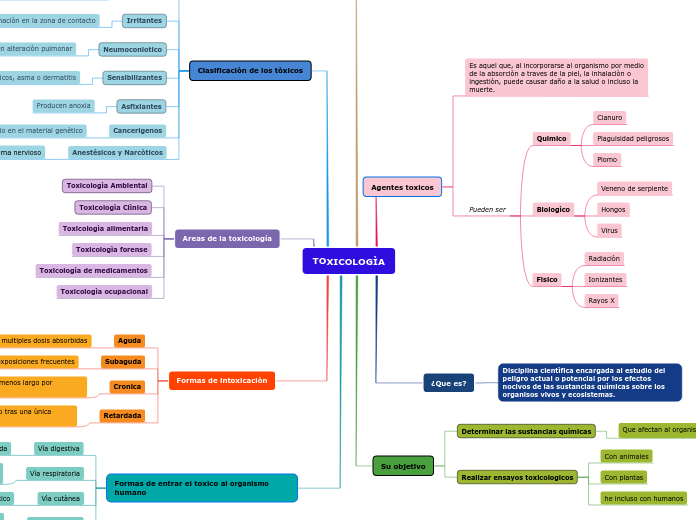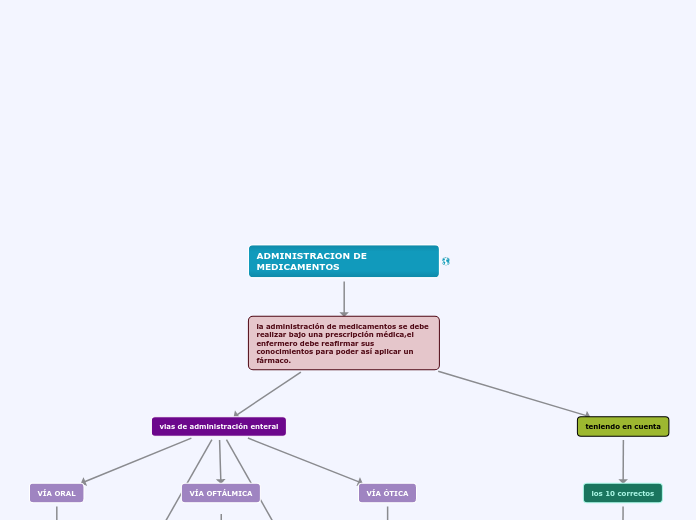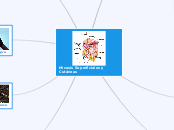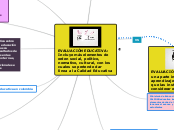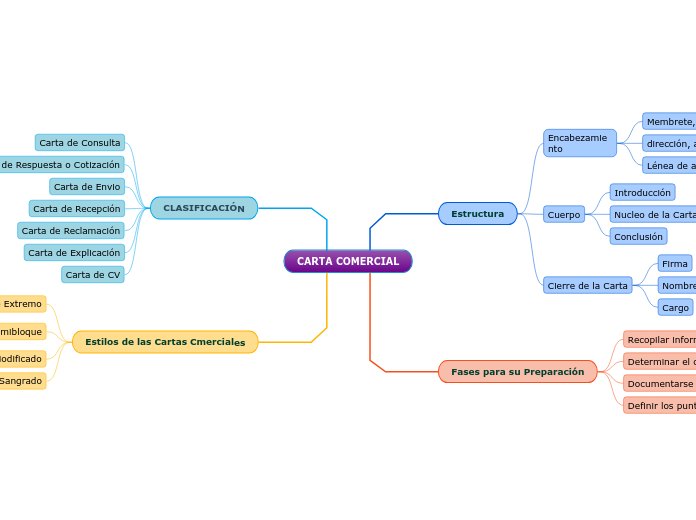TOXICOLOGÌA
In linguistics, syntax is the set of rules, principles, and processes that govern the structure of sentences in a given language, usually including word order.
Formas de entrar el toxico al organismo humano
Vìa circulatoria
Picadura o mordedura de animal e inyecciòn de medicamentos
Vìa cutànea
Abosrciòn o contacto con el tòxico
Determinados productos agricolas,plantas
Vìa respiratoria
Inhalaciòn de gases tocxicos
Pinturas, vapores, humo de incendios
Vìa digestiva
Ingesta en forma sòlida o lìquida
Alimentos, lìquidos càusticos o àcidos
Formas de intoxicaciòn
Retardada
Aparece a mayor o menor plazo tras una ùnica exposiciòn
Cronica
Aparece en un plazo màs o menos largo por absorciones repetidas
Se produce en un tiempo mayor de 90 dias
Subaguda
Se produce por exposiciones frecuentes
Se produce en un tiempo maximo de 90 dias
Aguda
Se produce por una o multiples dosis absorbidas
Se produce en un tiempo maximo de 24 hrs
Areas de la toxicología
A compound sentence is a sentence that has at least two independent clauses joined by a comma, semicolon or conjunction. An independent clause is a clause that has a subject and verb and forms a complete thought.
Toxicologìa ocupacional
Toxicología de medicamentos
Toxicologìa forense
Toxicologìa alimentaria
Toxicologìa Clìnica
Create your own compound sentences, using the coordinators above.
Toxicologìa Ambiental
When independent clauses are joined with coordinators (also called coordinating conjunctions), commas and semicolons, they do more than just join the clauses. They add meaning and flow to your writing.
Clasificaciòn de los tòxicos
A complex sentence is a sentence that contains an independent clause and one or more dependent clauses.
An independent clause can stand alone as a sentence, but a dependent clause even though it has a subject and a verb cannot stand alone.
Anestésicos y Narcòticos
Depresiòn del sistema nervioso
Cancerigenos
Provocan càncer o càmbio en el material genètico
Asfixiantes
Attributive clauses serve as an attribute to a noun (pronoun) in the main clause. This noun or pronoun is called the antecedent of the clause.
Producen anoxia
Sensibilizantes
An adverbial clause is a group of two or more words that function as an adverb in a sentence.
Efectos alèrgicos, asma o dermatitis
Neumoconiotico
The subject clause is a dependent clause that acts as a subject.
Procucen alteraciòn pulmonar
Irritantes
A predicative clause may be introduced by conjunctions - that, whether, whether... or, as, as if, as though, because, lest, the way - or connectives.
The latter may be conjunctive pronouns - who, whoever, what, whatever, which - or conjunctive adverbs - where, wherever, when, whenever, how, why.
Inflamaciòn en la zona de contacto
Corrosivos
The object clause is a phrase on which a verb performs an action. It falls at the end of a sentence, and is governed by a verb or a preposition.
Producen destrucciòn en los tejidos vivos
Integrantes: Lilibeth Rosas, Aracelys Arias, Keren Landecho, Marian Sanchez
Su objetivo
Realizar ensayos toxicologicos
See the example below and try to create your own simple sentences.
Tim is driving the red car.
he incluso con humanos
Con plantas
Con animales
Determinar las sustancias quìmicas
See the example below and try to create your own simple sentences.
Tim is driving the car with his mother.
Que afectan al organismo
¿Que es?
Disciplina cientìfica encargada al estudio del peligro actual o potencial por los efectos nocivos de las sustancias quìmicas sobre los organisos vivos y ecosistemas.
An adverbial is an individual word (that is, an adverb), a phrase, or a clause that can modify a verb, an adjective, or a complete sentence.
Agentes toxicos
Pueden ser
Fisico
Rayos X
Ionizantes
Radiaciòn
Biologìco
Virus
Hongos
Veneno de serpiente
Quimico
Plomo
Plaguisidad peligrosos
Cianuro
Es aquel que, al incorporarse al organismo por medio de la absorciòn a traves de la piel, la inhalaciòn o ingestiòn, puede causar daño a la salud o incluso la muerte.
Categoria toxicologicas
IV - Verde
Ligeramente peligroso
III- Azul
poco peligroso
II- Amarillo
Moderadamente peligroso
L B- Rojo
Altamente peligroso
L A- Rojo
Extremadamente peligroso
